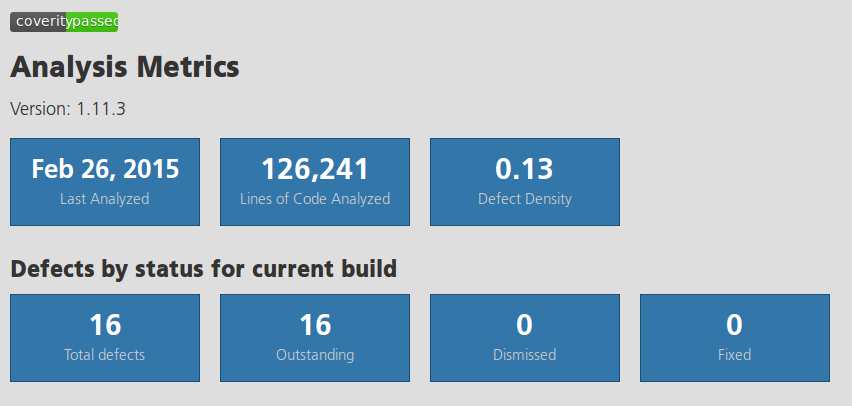A while ago I took the time to register with
Coverity, which if you do not know is a company specialized in scanning C source code for problems, and scan the Liferea code base. I was quite happy with the results. A screenshot:

So according to Coverity Liferea has a comparetivly low defect density. For me this means you guys do good testing and contribute high quality code! Even if mistakes end up in the code they are immediately spotted by the community.
The 16 Defects
From those 16 reported defects most are C constructs used in Liferea that Coverity deems suspicious, because they might masks errors. Such are dead case conditions or fall-through default branches. There were several potentially uninitialized variables and 4 real bugs that all could have caused memory corruptions. Finding those really improved Liferea. Read on for an example.
Find the Defect!
If you want to test your defect detection skills try this example uncovered by Coverity. I probably read the same code dozens of times but was blind to the obvious:
gchar *
enclosure_get_mime (const gchar *str)
{
enclosurePtr enclosure = enclosure_from_string(str);
gchar *mime = NULL;
if (enclosure)
mime = g_strdup (enclosure->url);
enclosure_free (enclosure);
return mime;
}
Of course the unconditional free'ing is the problem. Easy to spot, right? Well obviously not, this problem was in the code for a longer time and I suspect it caused quite some crashes on feed parsing. Well, try to read above code snippet again, this time without knowing there is a problem. Isn't there this nice if condition, the nice formatting, someone must have thought about all this, so no danger at all, right? What is to be learned? Well, it's worth scanning the code more often. And it is great that many companies like Coverity allow OSS projects to use their services for free.
 So according to Coverity Liferea has a comparetivly low defect density. For me this means you guys do good testing and contribute high quality code! Even if mistakes end up in the code they are immediately spotted by the community.
So according to Coverity Liferea has a comparetivly low defect density. For me this means you guys do good testing and contribute high quality code! Even if mistakes end up in the code they are immediately spotted by the community.